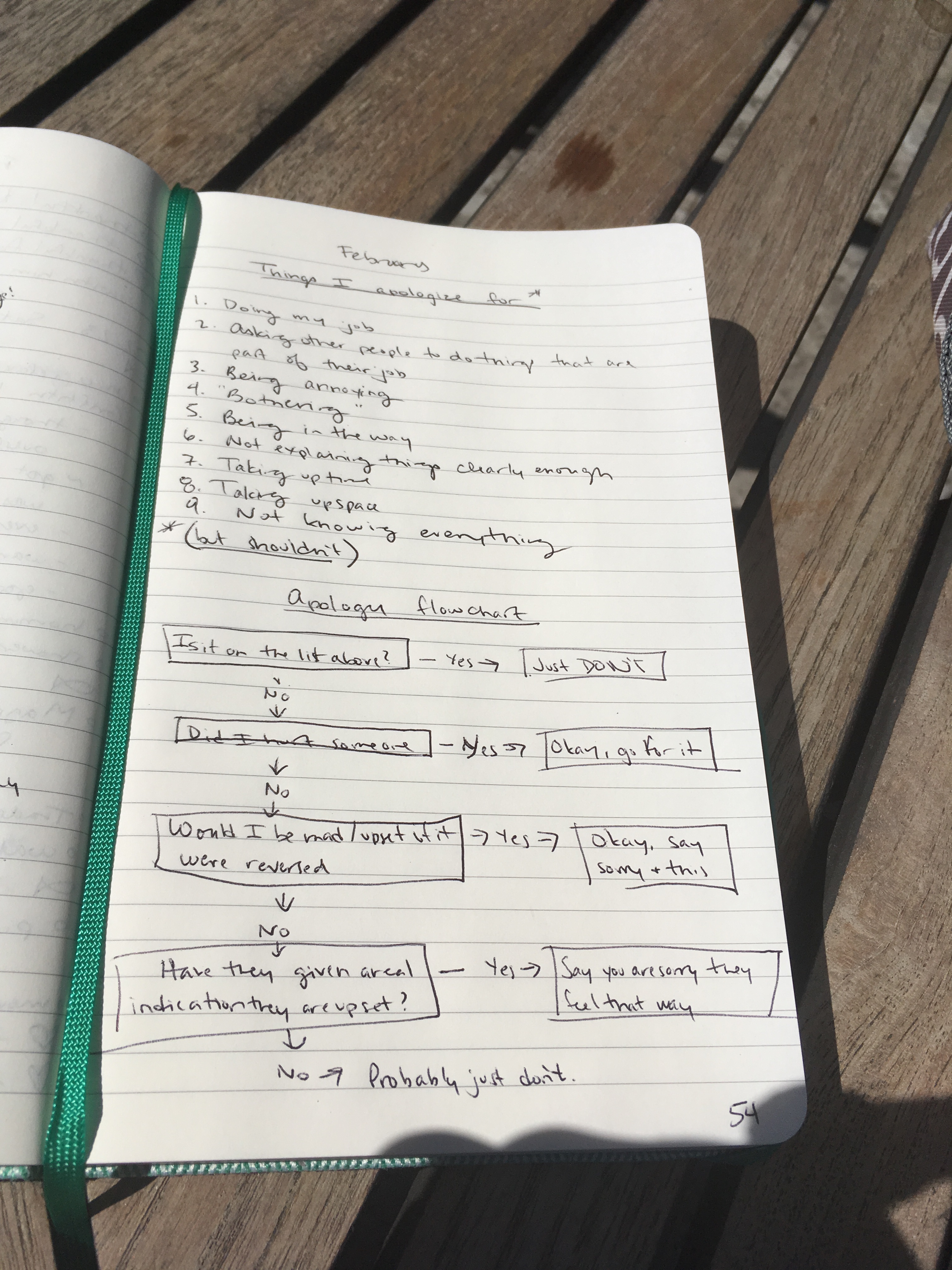tl;dr? The Apology Wizard is a Vue.js web app that will tell you if you have to say sorry. Spoiler: you probably don’t.
Repo on GitHub, deployed on GitHub Pages
Origins
For as long as I can remember, I’ve been a person who says “I’m sorry.” A lot. A chronic apologizer. A couple of years ago, I became painfully aware of this fact, and I started to ask myself why. What was I apologizing for?
As it turns out, often the answer was nothing. Or rather, not a thing worth apologizing for. One day during my lunch break, I wrote out a list of things I apologize for, but probably shouldn’t. The same day, a colleague and I had been talking about decision trees (for a question entirely unrelated to apologies), and I decided to draw one out.

The wizard
Around the same time that I became hyper aware of my tendency to apologize, I attended the Code4Lib Conference in San Jose, and one of the presentations was about Vue.js. The idea of making a decision tree web app seemed like the perfect opportunity to try it out.
In a way, it was. The project was relatively small and clearly defined. The logic of a decision tree was a good chance to think about if statements. When I decided I wanted to show a cute dog picture at the end of each series of questions, I had to learn how to use an API. Having these concrete goals gave me something to do with the skill I wanted to learn.
Reflections
It’s been a couple of years since I made the apology wizard. While I know there is room for improvement, I’m not set on fixing it anytime soon. It captures a moment in time, and it served its purpose as a learning opportunity. For me at least, that is enough.
I’d also like to think that I’ve become better about apologizing, though again, there’s still room for improvement. While I hope to always have the grace to apologize when I’ve caused someone pain, I also know that “sorry” is not the appropriate response to every scenario in which I feel I’m not enough. Challenging the impulse to apologize has pushed me to examine my insecurities and find new, more effective ways of communicating my questions, concerns, and needs. Even better, it has emboldened me to take up space, unapologetically.